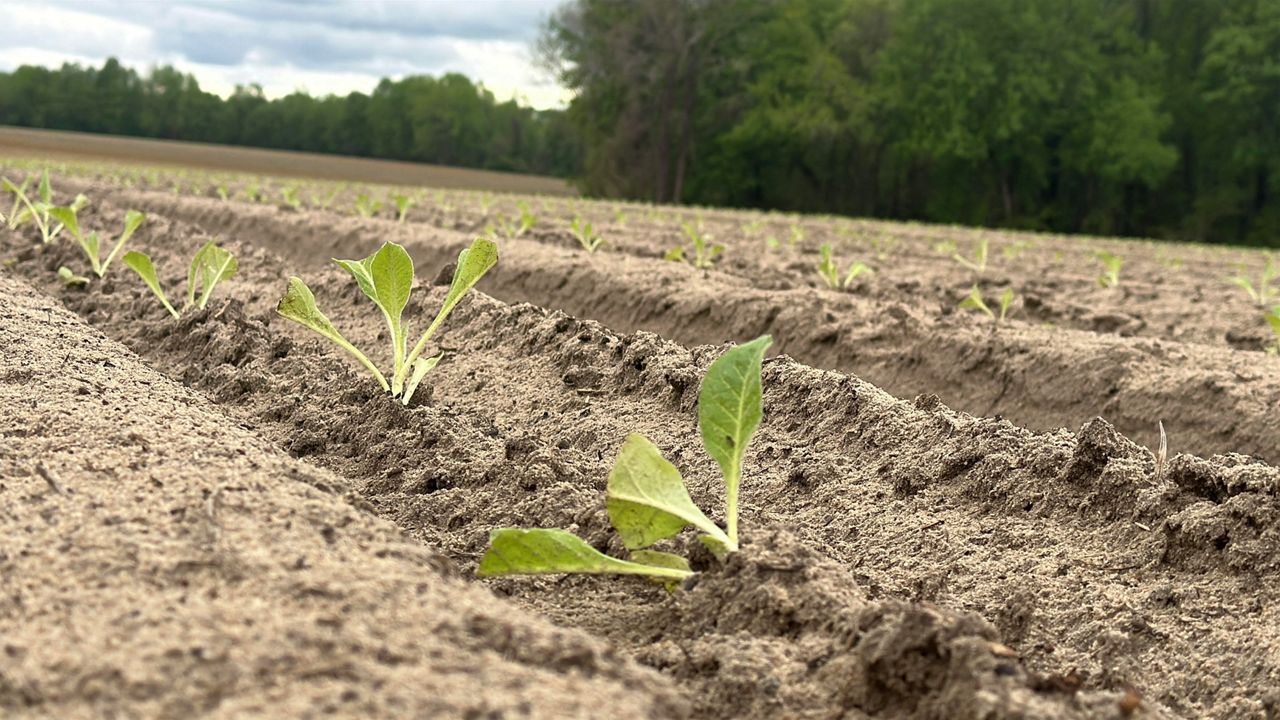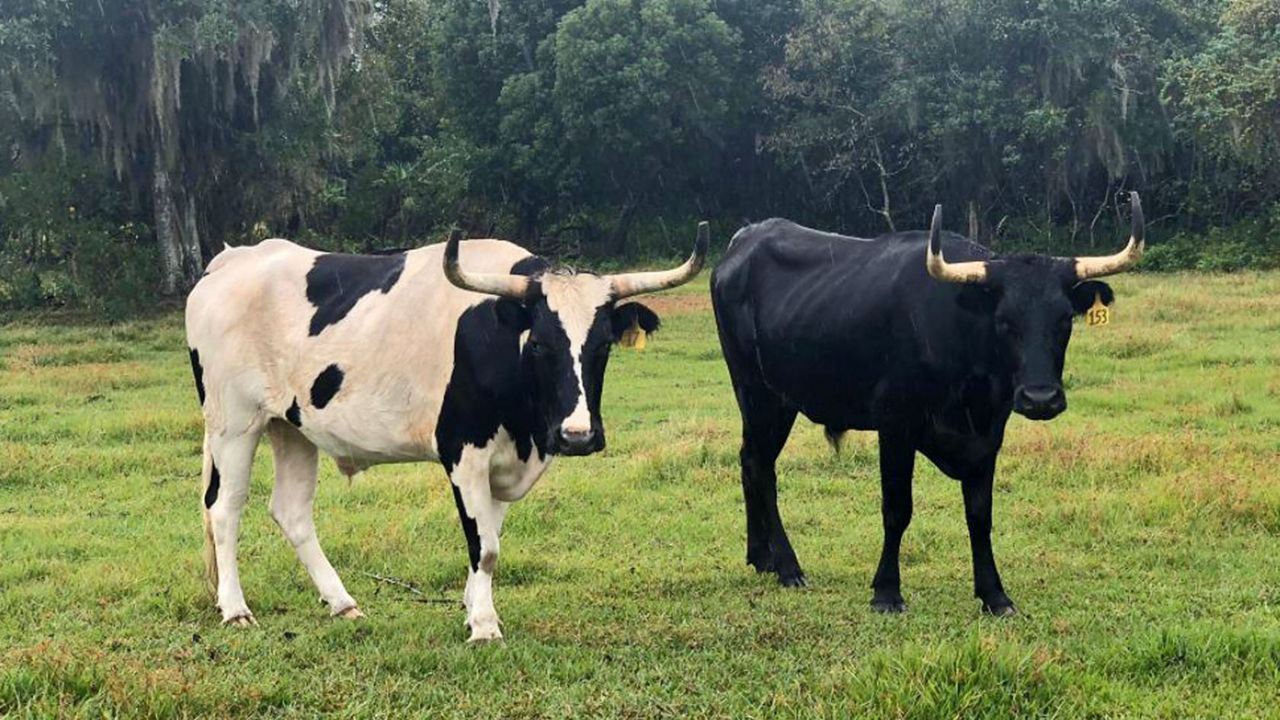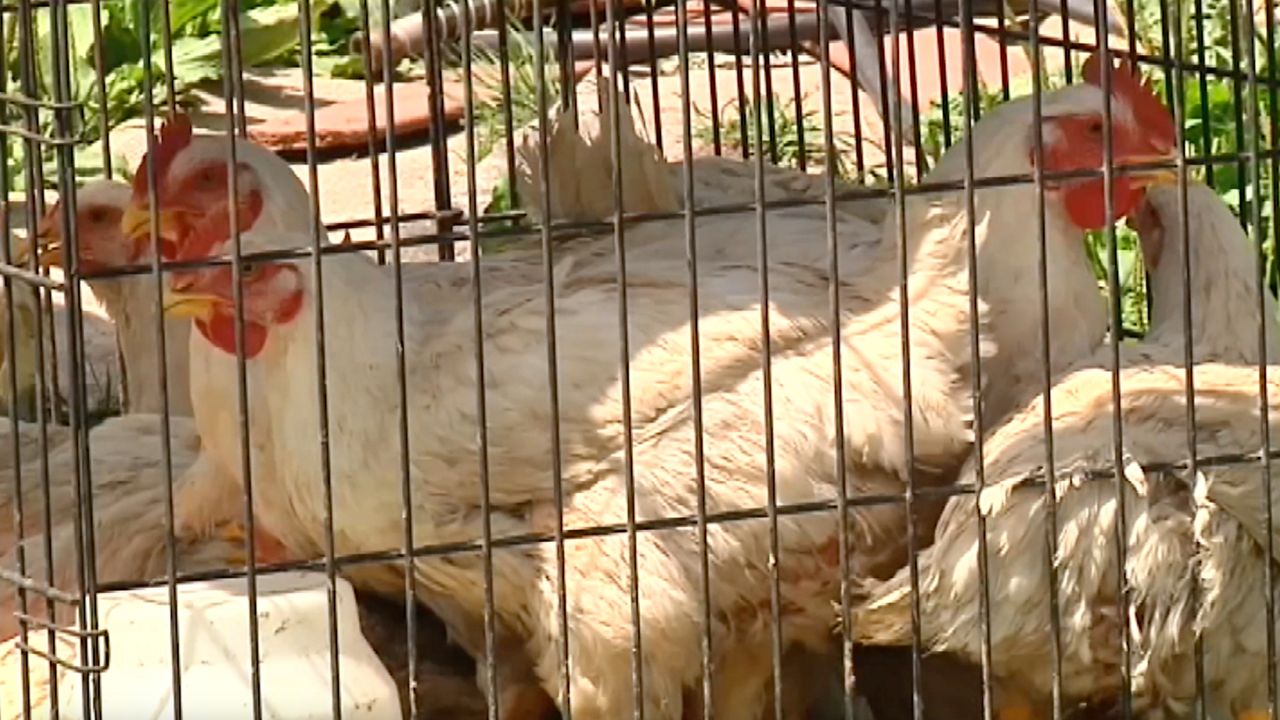SAMPSON COUNTY, N.C. — North Carolina is facing the worst drought the state has seen in summer months since 2008.
The latest drought monitor report, released every Thursday, shows nearly 90% of the state is in moderate drought or worse. The U.S. Department of Agriculture says that almost three quarters of the state's crops were rated poor or worse, a steady decline seen over the last several weeks.
Farmers across the state are working on overcoming the challenges of this year’s weather.
Blazing hot sunshine and below normal rainfall mean most types of produce are affected, even fruit that generally loves the warmth like watermelons.
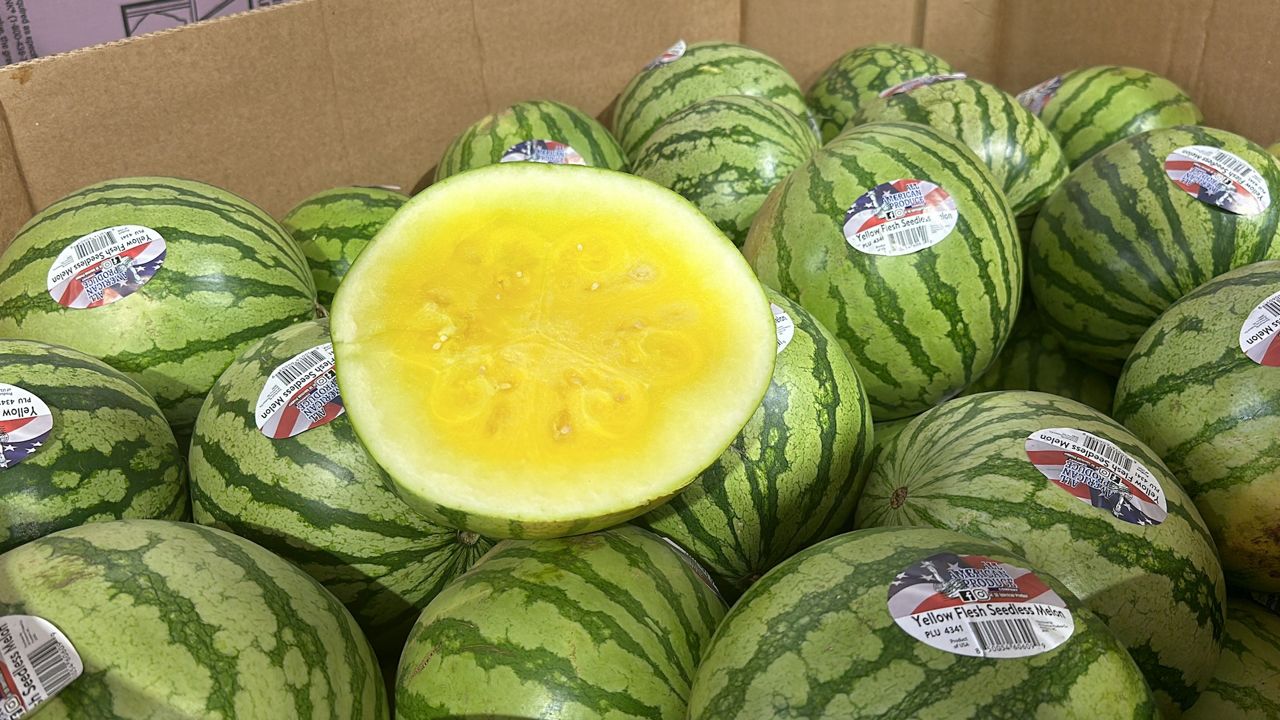
“Heat doesn't really work great on anything if it's extreme,” farmer Billy Augustine said. “Because, you know, we don't like to be hot on our bodies the same way a plant doesn't like to be hot. It just stresses it out and makes it where it doesn't want to produce. It goes into defense mode, as we call it.”
Augustine says this year's crop has a lot of small melons, and they won’t be able to sell them all for full price.
Augustine is a fourth-generation farmer. He founded the All American Produce Co. in 2020 and works with farms all over eastern North Carolina to distribute fresh fruit and vegetables.
“It's just trying to promote American-grown products for consumers,” Augustine said. “And, you know, give them that sense of hope that there's still people around here producing American-grown products, that the American farmer still survives.”
But consumers don’t always know what goes on behind the scenes and how things like weather really affect what you see on the shelves.
“We were almost in a severe drought for a while,” Augustine said. “A lot of our farms were running out of water. A lot of wells were drying up.”
Augustine says many of their farms are irrigated, which allows the produce to get some of the water they need despite the low rainfall.
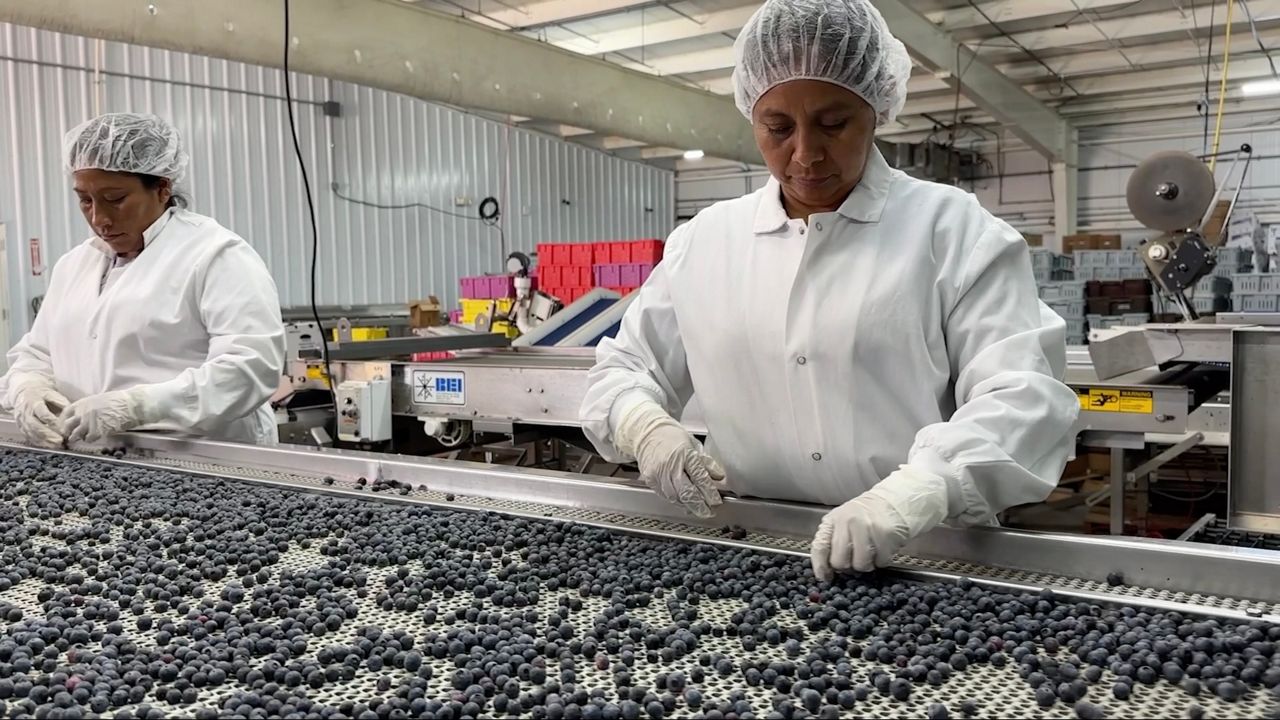
“Every crop across the board has been affected by this heat this year,” Augustine said. “I mean, whether quality was down or, you know, crops just being done a few weeks before they're normally done because the heat just pushed them all out, pushed everything ahead of schedule.”
Although it’s nearing the end of the summer season, All American Produce is still harvesting tomatoes, peppers, cucumbers, squash, zucchini, melons and blueberries.
“It's a lot of human input and a lot of, you know, time, effort, blood, sweat and tears,” Augustine said. “I wish a lot more people would realize what it takes to farm and get this stuff to the shelves.”
All American Produce partners with about 20 farmers in eastern North Carolina to grow over 2,000 acres of fresh fruits and vegetables every year. Within 24 to 36 hours, processed produce is distributed all across the U.S.
Agriculture Commissioner Steve Troxler released a statement Wednesday saying there are no federal or state disaster declarations issued. He says it’s still too early in the season to see the full impacts, but he encourages producers to report conditions to their local farm service agency.







